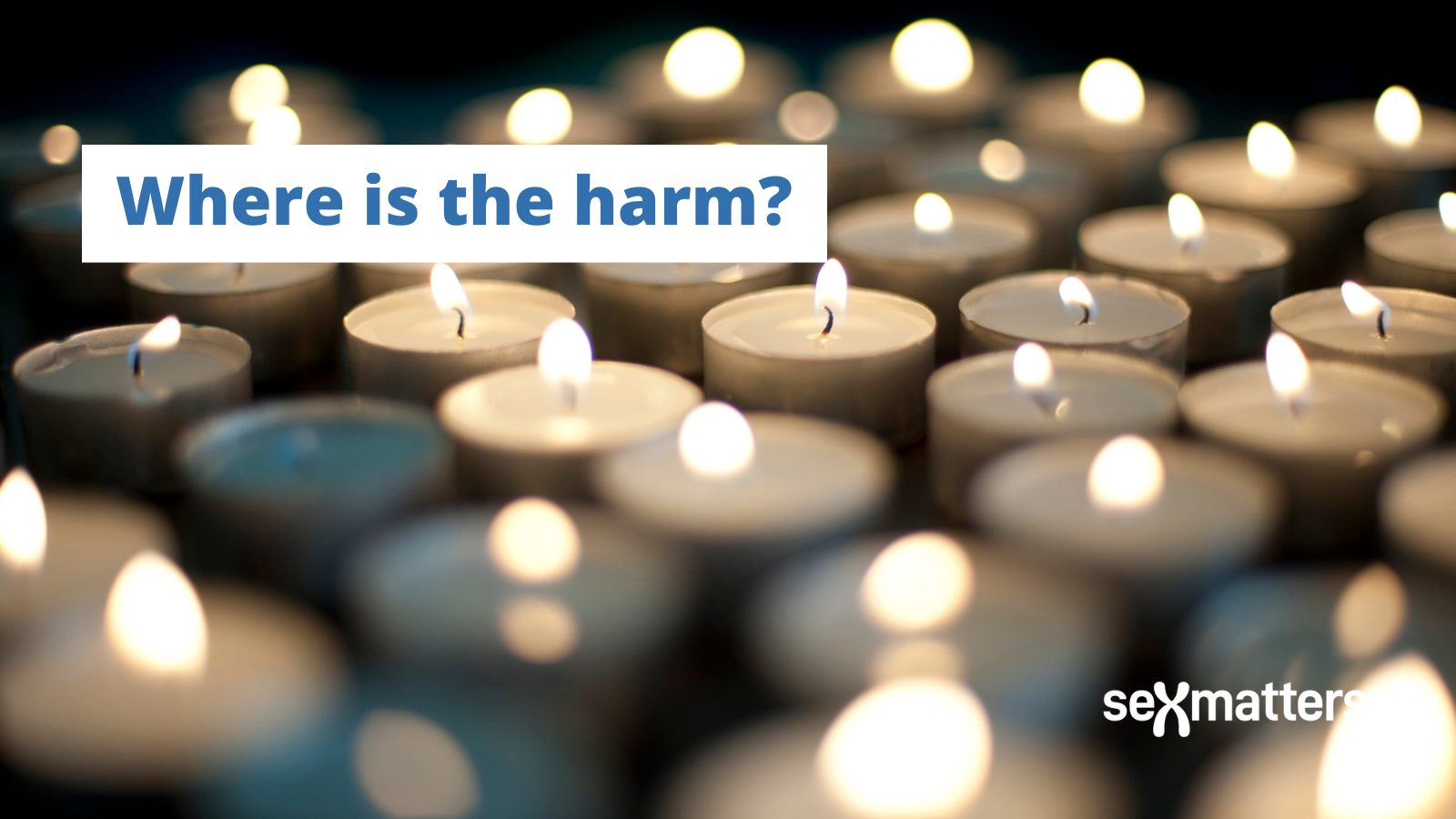Putting remembrance in context

Today, 20th November, is Trans Day of Remembrance, which has been marked annually since 2011 and is intended to commemorate the deaths of trans-identified people caused by transphobia. It has rapidly become a fixture in transactivists’ campaigning calendar. Unevidenced claims about the outsize risks faced by trans people, the necessity of “gender-affirming” healthcare and the risk of suicide are repeated widely and uncritically – including, this year, by the Equality and Human Rights Commission, the UK’s equality-law watchdog.
Employers that are part of the Stonewall Workplace Equality Index are encouraged to mark the day in their internal communications, and to allow employee network groups to hold themed events.
Where is the harm?
Barrister Anya Palmer writes in The Critic that employers should think about the risk of discrimination and harassment if LGBT staff networks and others organising Trans Day of Remembrance events are allowed to suggest that gender-critical speech is responsible for deaths.
Every untimely death is tragic and people can mark whichever days they choose. But marking Transgender Day of Remembrance at work creates the impression that trans people in the UK are at elevated risk of murder or other violence – a claim that is unsupported by the evidence.
An article by Jo Bartosch in Spiked takes an unsentimental look at the numbers. According to Karen Ingala Smith, who compiles the Femicide Census, a yearly list of women who have been murdered and where the prime suspect is a man, more than 2,000 women have been killed by men in the UK since 2009. Over the same period just ten people with trans identities died by violence. In an article in 2021 Ingala Smith looked at what is known about the murders of trans people, and concluded that the claim that “trans women are women” hinders the sort of analysis required to keep both women and trans-identified men safe from male violence. “Being abused and/or killed as or because you are a gender non-conforming man is not the same as being abused and/or killed as or because you are a woman,” she writes. “We help no one if we don’t acknowledge who is doing what to whom and why, or by falsely claiming that violence against trans people is the same as men’s violence against women.”
Claims that trans-identified people, especially youths, are at extremely high risk of suicide if not “affirmed” in their gender identities are also increasingly featured on Transgender Day of Remembrance. In The Critic, an anonymous psychiatrist looks at the harms to trans-identified youths caused by this rhetorical use of suicide to promote childhood transition by terrorising its opponents. A young person who hears repeatedly that they are at risk of self-harm or suicide if they are denied social transition, puberty-blockers and hormones may come to believe this claim – to the detriment of their mental health.
In 2018 Janice Turner wrote in The Times about the irresponsible use of suicide rhetoric as a political weapon. Helen Belcher, a trans-identified Liberal Democrat recently selected as the party’s candidate for a parliamentary seat in the next election, complained to the independent press regulator, IPSO, about the article. Turner was investigated and exonerated.
In February this year, transgender teenager Brianna Ghey was stabbed to death in Warrington. Two 15-year-olds have been charged with murder. Criminal proceedings are now under way. Police said there was no evidence that this was a transphobic attack and urged people not to speculate, as it is extremely important there should be no commentary that could prejudice a fair trial.
But the tragedy was followed by a wave of hostility towards gender-critical people. On social media and at vigils, JK Rowling was blamed for the teenager’s death. Media commentator India Willoughby tweeted: “British Media, The Government, JK Rowling, Ricky Gervais, and the whole hideous, stinking Gender Critical movement have blood on their hands.” A teacher had to apologise after telling an education conference that Rishi Sunak was “supporting the murder” by blocking gender self-ID in Scotland.
Palmer warns that following the case of Fahmy v Arts Council England, employers who allow similar rhetoric at work accusing gender-critical people of hatred and being responsible for murder risk harassment claims from employees. If there is a Transgender Day of Remembrance event at your workplace, it should not be compulsory to take part. Rather than get into unproductive arguments with the organisers, however, you might consider complaining through official workplace channels if you feel it creates a hostile environment or is irresponsible in the way it treats suicide. You can also tell us about it.
